-
Last updated on
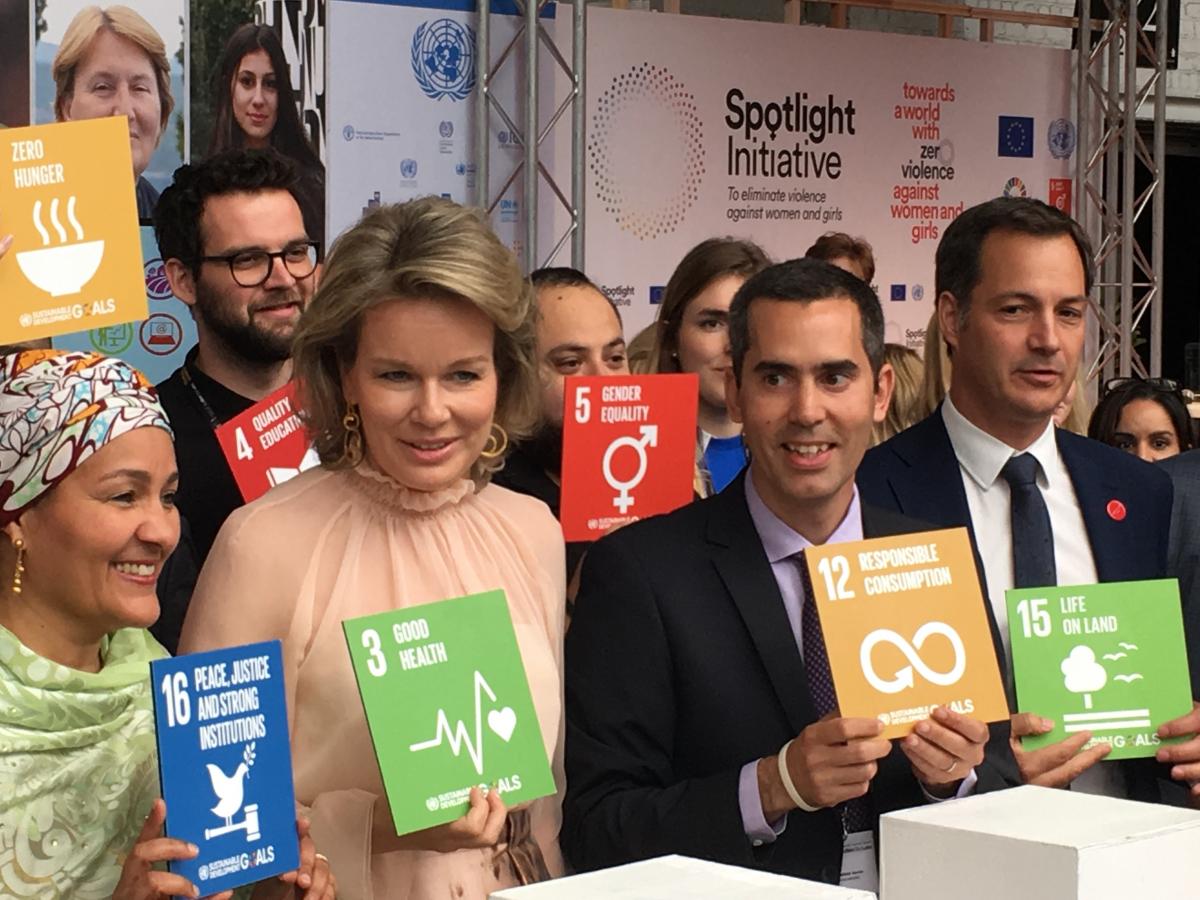
H.M.Q. Mathilde during the European Development Days 2018. On the far left, Deputy Secretary-General of the UN Amina J. Mohammed, on the far right former Minister of Development Cooperation Alexander De Croo.
© SPF AE/FOD BZ
In 2015, all United Nations (UN) Member States signed up to the Sustainable Development Goals (SDGs). With these 17 goals, the UN described a detailed roadmap towards a better world in 2030. Among other things, this aimed to achieve a world which is 'free of poverty, hunger, disease and want, where all life can thrive'.
The predecessors, the Millennium Development Goals (MDGs, 2000-2015) only applied to developing countries. The SDGs, however, became 'universal'; they apply to all countries, in the North and South. After all, the themes are so broad – environment, climate, education, gender, poverty, sustainable consumption, etc. – that we can only achieve the goals successfully by working together. Everyone needs to do their bit. We're all in this together, was the mantra. The SDGs became an important guideline for Belgian domestic and foreign policy there and then.
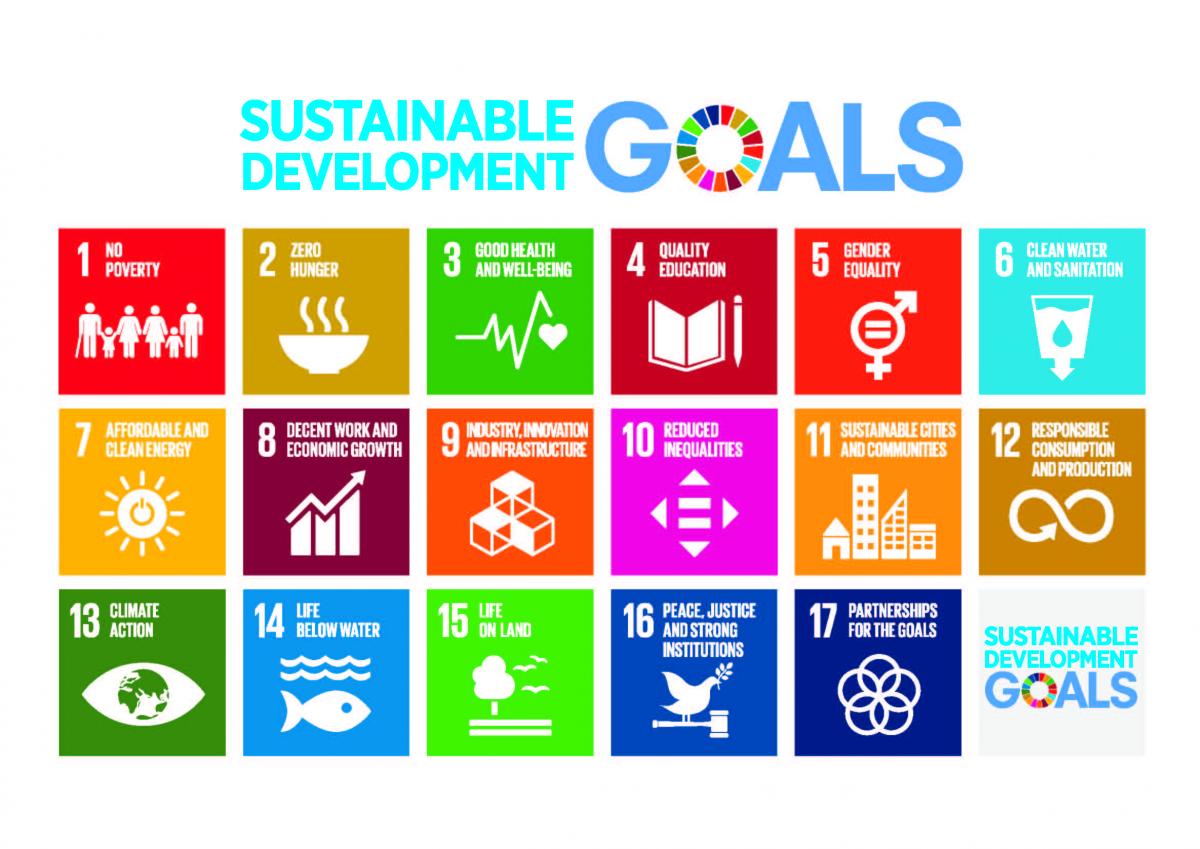
An overview of the 17 Sustainable Development Goals (SDGs)
We are now almost six years down the line. We were well on our way to achieving quite a few of the SDGs. Unfortunately, the COVID-19 pandemic has severely hampered that progress, which has prompted the UN to declare the remaining ten years of the programme a Decade of Action. Change has to happen now.
Her Majesty the Queen has performed the role of UN SDG Advocate since 2016. She is therefore an excellent witness to our progress. We put a few questions to her.
In 2016, Ban Ki-moon, then Secretary-General of the United Nations, asked you to become an SDG Advocate. How do you fulfil this role?
H.M.Q. Mathilde: The United Nations Sustainable Development Goals (SDGs) are indeed a complex and urgent agenda for action. Unfortunately, their implementation has been severely affected by the COVID-19 pandemic. To contribute to their achievement, choices must be made, priorities must be set and action taken at different levels; there must also be effective communication on the importance and urgency of these goals.
I therefore try to provide support on these issues in Belgium, at the European level, and at the international level. This includes field visits - for example to Jordan, Ghana and Mozambique - specifically on the subject of the SDGs, and activities at the United Nations in New York and Geneva. During lockdown, virtual discussions intensified, particularly with the WHO and UNICEF, but also with people on the ground.
The Davos Economic Forum is also an opportunity to exchange views with many people from different backgrounds on issues related to sustainable development. The proximity of the European institutions in Brussels also offers opportunities. The annual European Development Days, which include the participation of the United Nations, are an important event.
But more ad hoc events also play their part, such as UNESCO's Global Education Meeting 2018 and the Conference on the 20th Anniversary of the Rights of the Child, both held in Brussels, and the dialogue recently organised by the European Policy Centre, on the relevance of the SDGs for post-COVID-19 recovery.
In Belgium, I am now Honorary President of the Federal Council for Sustainable Development. I regularly meet stakeholders who are involved in the implementation of the SDGs; they are most often from different backgrounds - the business world, the voluntary sector and universities. I have noted that there is increasing deliberation and that many new initiatives are underway, even though they are sometimes not well known.
Good communication with the FPS Foreign Affairs and Belgium's permanent representations to multilateral organisations also allows me to regularly review the SDG priorities and the emerging themes. The support of the embassies is a considerable asset, especially for the effective implementation of my field missions.
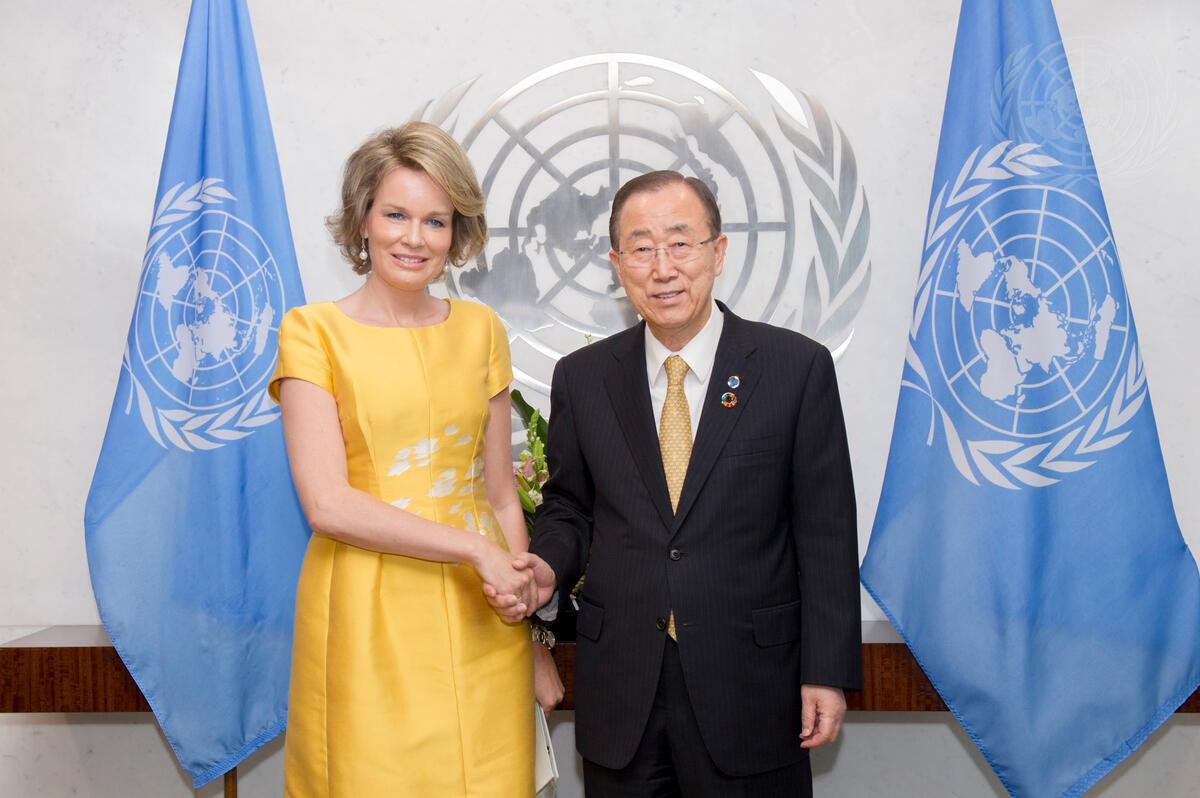
Then UN Secretary-General Ban Ki-Moon invited H.M.Q. Mathilde to become an advocate for he SDGs in 2016.
© Rick Bajornas / United Nations Photo
How are young people involved in the SDGs? What advice would you give them?
H.M.Q. Mathilde: The role of students and young people in general in the achievement of the SDGs seems crucial to me. We must listen to them and take them seriously. The development and dissemination of learning and knowledge tools to help them implement the SDGs would, I believe, benefit from being accelerated.
Many young people are aware of the challenges and want to be part of the solution. They are connected not only to their friends and acquaintances, but to young people from all over the world who share their concerns. They are undoubtedly more willing than their elders to change their mentality, and to reconsider their choices, values and consumption patterns.
It is this capacity that must be nurtured and encouraged if we are to develop education for responsible citizenship. That said, adults must also assume their responsibilities.
Which SDGs are particularly important to you?
H.M.Q. Mathilde: When I became Sustainable Development Goals Advocate, I was not starting from scratch. As Honorary President of UNICEF Belgium, and through the Foundation that bears my name, I have always wanted attention to be focused on the most vulnerable, in particular children and young people. But we must also focus on the elderly, who have been significantly weakened by the COVID-19 pandemic throughout the world, and who suffer from discrimination more often than we think.
I have made SDG3 ("Good Health and Well-being") and in particular mental health, one of my priorities. As you know, I am trained as a psychologist and speech therapist, and I can see that mental health issues are not given the necessary attention or resources in many countries. Stigma and lack of access to care are still very common. The COVID-19 pandemic has highlighted the importance of mental well-being and I hope that we can build on this awareness to develop mental health systems that meet the needs.
SDG4 ("Quality Education") is another of my priorities. Without quality education, without quality teachers, the entire human capital and development of a country is threatened. Significant quantitative progress has been made in school enrolment. But all too often, girls leave school because of early marriage, pregnancy, or because their families need extra help.
In many cases too, the quality of teaching also leaves much to be desired and school does not prepare students well for the future. The COVID-19 pandemic, which has led to a dramatic drop in family income and the closure of schools in many countries, has further compounded these problems. Many children and young people will never return to the education they interrupted.
Lastly, SDG5 (“Gender equality”) is very important to me, in particular the economic empowerment of women and girls, and their financial inclusion, which empowers them to make their own choices and manage their own lives.
But the SDGs are one package, and are all interconnected. To achieve them, we must therefore continue to make progress on all fronts: poverty, climate, biodiversity, inequality, decent work, etc.
There are 17 UN Ambassadors for the SDGs in total. Do you work with them?
H.M.Q. Mathilde: The UN Secretary General selects the Sustainable Development Goals Advocates taking into account their personal profile, and also the diversity of their commitments and backgrounds. Some are involved on the ground, or are businesspeople, sportsmen and women, politicians, university professors or activists.
They therefore complement each other, but they are also very different in their choices and in the networks they are able to activate to promote the SDGs. The Secretary General brings them together every year to review their activities and priorities, but also to orchestrate this complementarity of skills and networks and enable them to coordinate their actions.
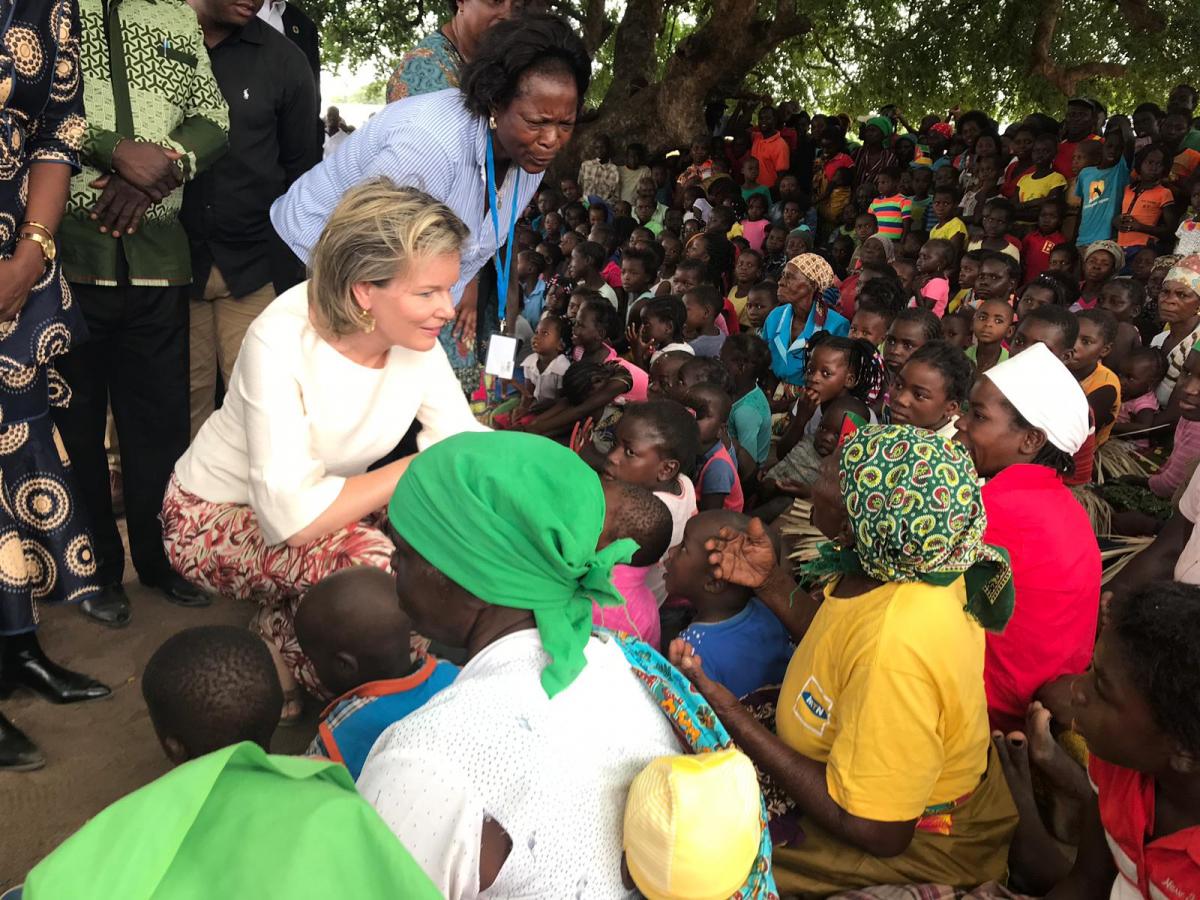
H.M.Q. Mathilde during a visit to Mozambique (2019) in her capacity as SDG advocate.
© Royal Palace, Belgium
The COVID-19 pandemic has had a considerable and undeniable impact on the SDGs. What signals and testimonies have made the greatest impact on you?
H.M.Q. Mathilde: My many conversations with primary and secondary school teachers and health professionals have been particularly revealing about the vast impact of the pandemic and lockdown on children and teenagers, especially on their mental well-being. I also made a point of seeing first-hand the terrible situation in nursing homes and personally supporting the elderly residents.
In addition, the United Nations was quick to draw attention to the collateral damage of the COVID-19 pandemic, namely increased poverty and inequality, domestic violence, school closures, and the risk of backsliding in the implementation of the SDGs. There has also been an increase in mental health problems, especially among young people.
My virtual discussions with the Director-General and the WHO Regional Directors for Africa and the Americas on the scale of the pandemic and the issue of vaccination were particularly enlightening, as were UNICEF's analyses of the impact of the pandemic and lockdown on children.
I was also able to speak with Enabel representatives in various African countries, and these conversations were very useful for understanding the diversity of situations in each of these countries, as well as the very serious economic and social consequences of the health crisis for their populations.
Following the pandemic, the UN is talking about "building back better", meaning we must rebuild our societies better than before.
How do you see the contours of such a society? We have less than ten years left to achieve the SDGs. How can we take it to the next level?
H.M.Q. Mathilde: It is true that as we start to recover, it may be tempting to recreate "the world of before", relying on familiar but often outdated models. But we can more clearly see the need to change our practices to prepare for the future, to react more effectively to warning signals. To build economically, socially and environmentally resilient and sustainable societies, aware of their global interdependence and the need for international solidarity. And leaving no one behind.
To this end, it would be interesting to use the integrative potential of the SDGs and ensure that all stakeholders take ownership of them as a reference framework. In this respect, the European Green Deal and the framework of post-COVID-19 recovery plans in the EU have undoubtedly paved the way.
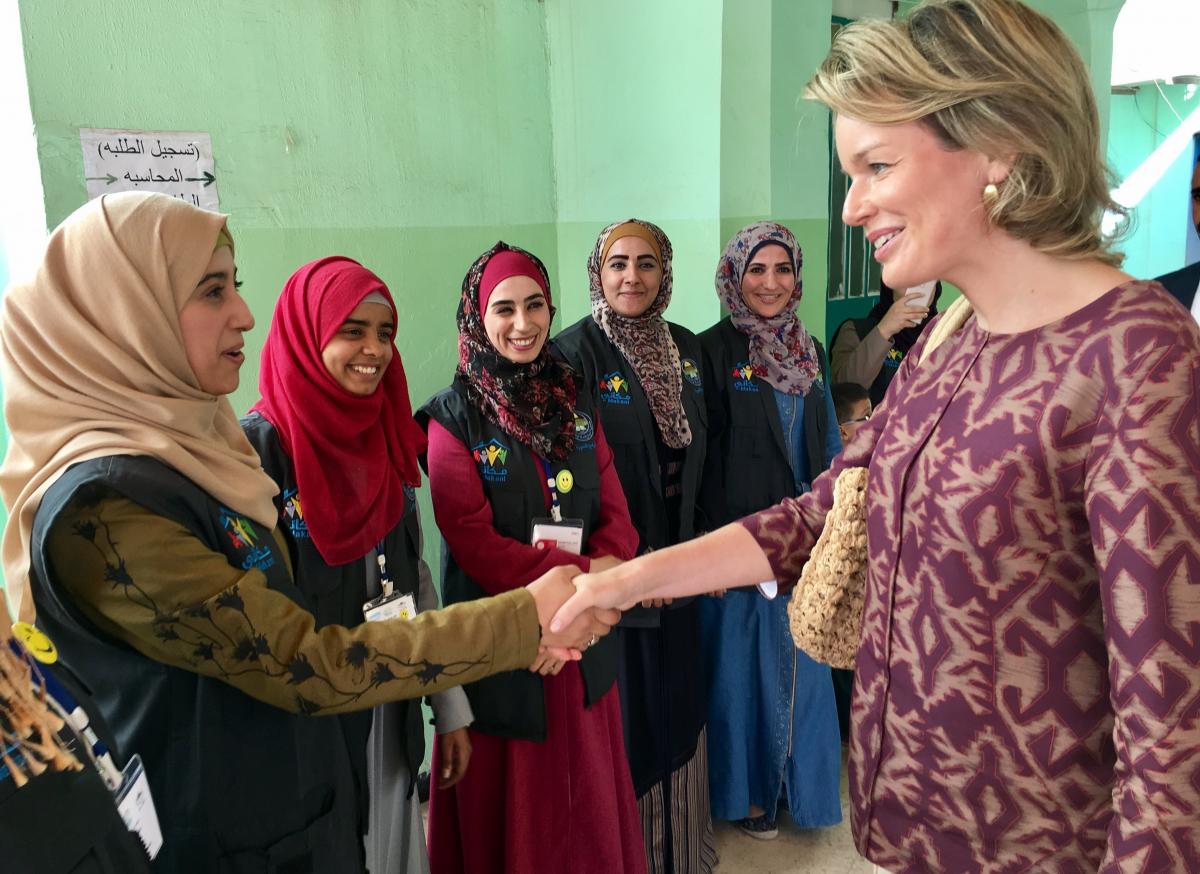
H.M.Q. Mathilde during a visit to Jordan (2016) that was dedicated to the accommodation of Syrian war refugees.
© Royal Palace, Belgium
The SDGs are not yet sufficiently known to everyone. How can we make them better known and encourage people to make their own contributions?
H.M.Q. Mathilde: I have already mentioned the dynamic role that the private sector, the research and academic community, civil society organisations, and the public sector, can play in promoting and implementing the SDGs. These efforts must be continued and expanded, including through partnerships between these different stakeholders, and also at the international level. And indeed, we must also give everyone the practical means to do their part.
This includes quality information for the general public on existing actions and solutions to support the SDGs and their availability. Sustainable development should gradually become a reference for everyone. This also involves mobilisation initiatives at the local level and in the workplace. Education on the SDGs at all levels - from kindergarten to university - would certainly benefit from being developed, so it can fully play its role in this regard.
What else would you like to achieve as an SDG Advocate? Do you have hope for the future?
H.M.Q. Mathilde: As we have just seen, the challenges remain immense. The COVID-19 pandemic is still raising a lot of questions. It has also reminded us that there are deep inequalities within our societies and between countries, and has created new ones.
There is therefore a complex process ahead of us: giving the SDGs the necessary priority, despite an uncertain health context, making up for delays and setbacks, and staying the course, taking into account the lessons learned.
I therefore intend to continue my work on the SDGs. It seems to me that, in general, there is a growing understanding of the importance of sustainable development, or at least some of its aspects, even if this progress is undoubtedly too slow. It is on this progress that we must build, together, while remaining aware of the reticence and obstacles to be overcome.
More on Cooperation

Art & diplomacy, a close duo
From Rubens to Hergé, it is impossible to imagine our society without art. But did you know that it also has unprecedented impor...
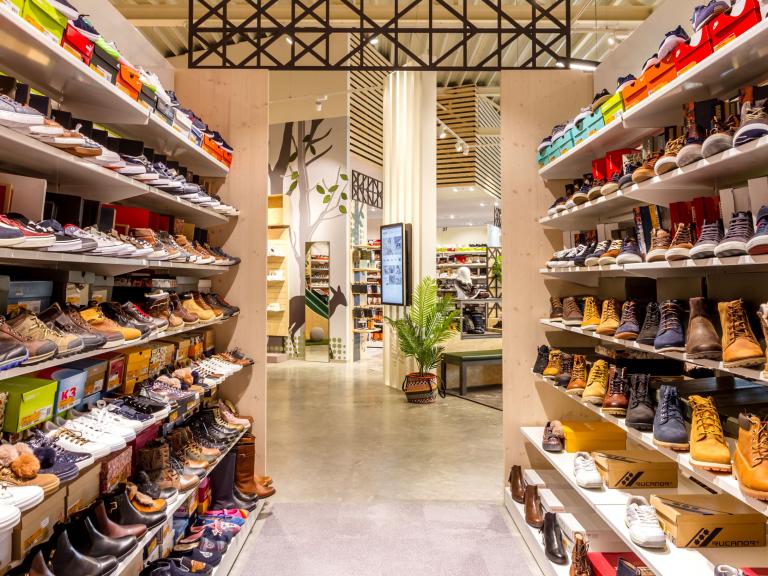
Wouter Torfs: ‘EU makes it easier to do business’
Wouter Torfs – CEO of the eponymous chain of shoe stores – prefers to pay in euros rather than pesetas. He is also extremely sat...
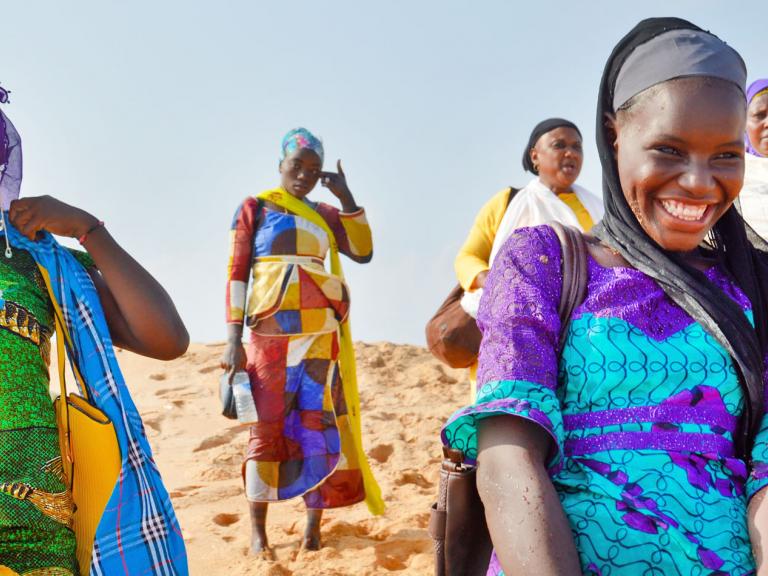
Niger, a country in dire need of our solidarity
After 50 years of development co-operation in Niger, our country has achieved some results it can be proud of. But the security ...
